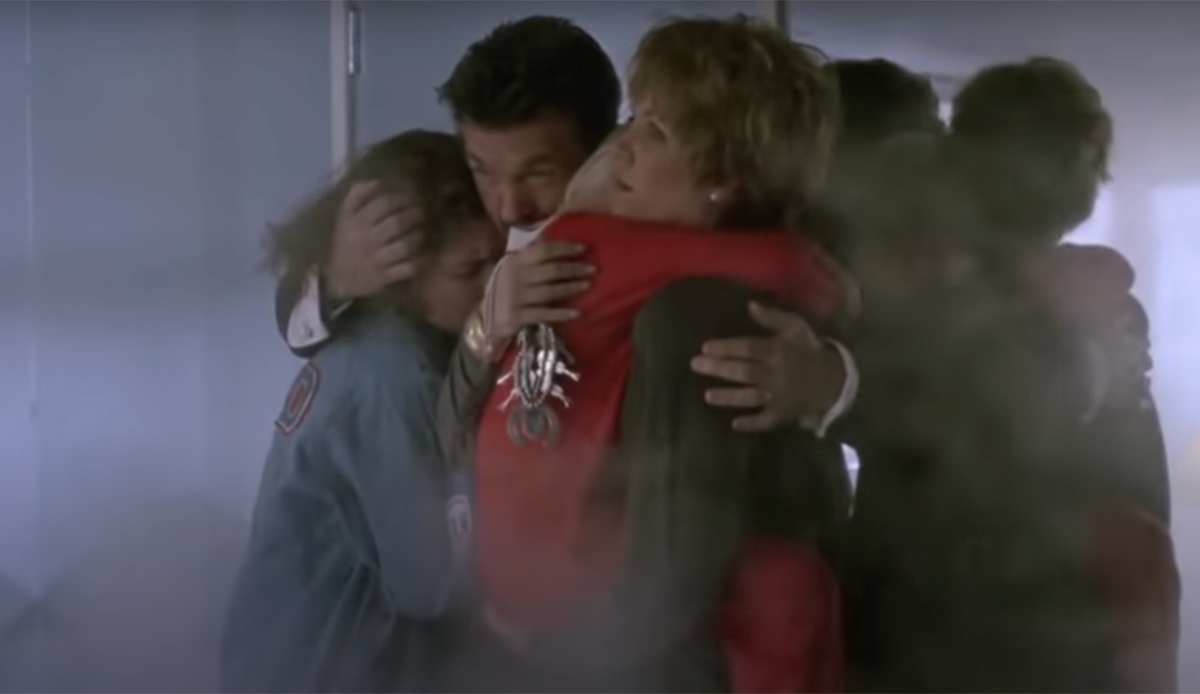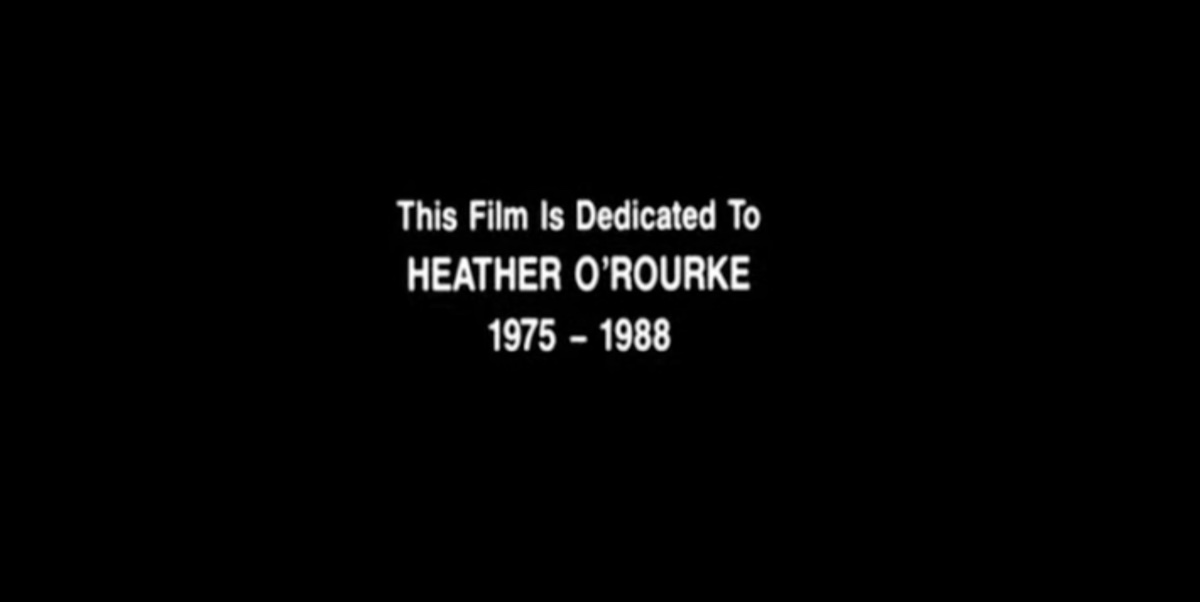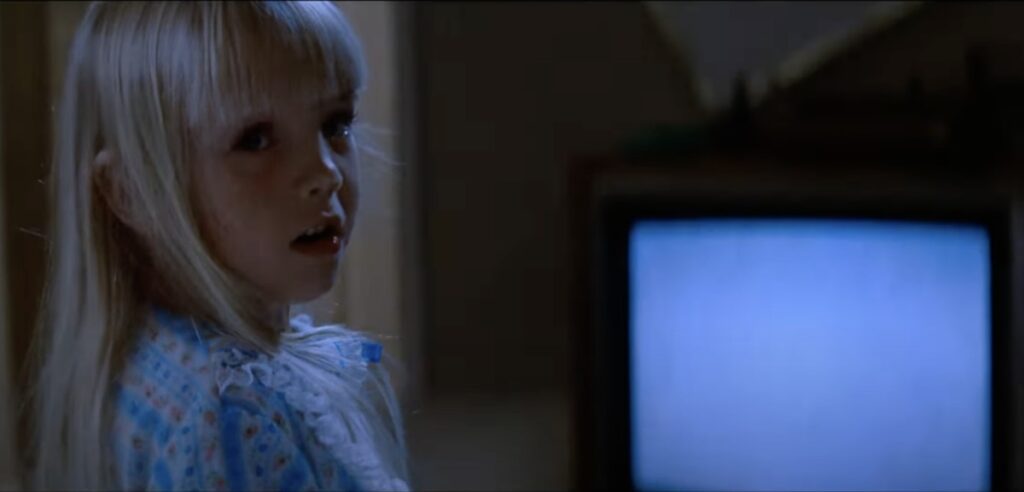When child star Heather O’Rourke tragically passed away at the age of 12 after a sudden illness, her final work, the horror sequel Poltergeist III, was still in production. (She had first come to fame with the first film in the franchise, back in 1982). According to a 2000 JoBlo.com interview with director Gary Sherman, there were still 17 pages of script left to shoot, including a “tear-jerking” ending in which medium Tangina (Zelda Rubinstein) sacrificed herself to save the lives of O’Rourke’s Carol Anne and other characters. That original ending was never shot, Sherman explained, and for those aware of the tragic backstory, the finished product is haunted in a completely different way than the filmmakers originally intended. Read on for what the director has said about being forced to finish the film after the heartbreaking death of his young star and how her passing may or may not have led to an entirely different ending to the franchise.
READ THIS NEXT: Mike Myers’ Bodyguard Says He Was Immediately Fired for Making Eye Contact With Him.
Although they had filmed the majority of the script, Sherman said many of those involved simply lacked the will to go on with the production after O’Rourke’s death. “We weren’t even going to finish the film at all after Heather died,” he told JoBlo.com. “I was not interested, neither was [producer] Barry Bernardi or the studio heads, Alan Ladd, Jr. and Jay Kanter. None of us were. We got together and decided to shelve the project, at least for the time being.”
According to Sherman, the Metro-Goldwyn-Mayer board demanded that the film be completed—with or without his direction—resulting in the film’s existing, unfulfilling ending being filmed after O’Rourke’s passing. “They basically said, ‘Look, either you finish this or we’ll get somebody to finish it for you,'” the director told JoBlo.com. “Since we weren’t about to let that happen, I half-heartedly wrote that pathetic ending where Bruce [Tom Skerritt] and Patricia [Nancy Allen] carry out a photo double, dressed as Carol Anne, at the end.”
While the show technically went on, no one’s heart was in it, at least according to Sherman, who said this is why Donna’s (Lara Flynn Boyle) boyfriend Scott (Kip Wentz), never makes it back from the Other Side after crossing over with Donna and Carol Anne.
“People just weren’t available anymore [to film it],” he said. “We just didn’t care about it. [Wentz] couldn’t even show up. He was on the east coast, that’s why he’s mysteriously missing. But we just didn’t care at the end of it all.”
For more movie trivia sent right to your inbox, sign up for our daily newsletter.

Five years after that JoBlo interview, a post on the Internet Movie Database boards by someone claiming to be Wentz would contradict Sherman’s version of events, however. The post suggested that not only was Wentz available for filming, but that the original ending had been shot and was simply nixed because it featured O’Rourke.
“I know Gary said [the original ending wasn’t filmed] in an interview a long time ago, but it’s not true,” the poster purporting to be Wentz claimed. “The ‘original’ ending was shot. The movie was wrapped about seven months before Heather died. After she died, they wanted to reshoot the ending because it obviously featured Heather prominently and it was all very upsetting for everyone.”
The controversy over whether the original ending was ever filmed—or if an unsatisfying ending was re-shot after O’Rourke’s death—has lingered for decades. A fan site has delved deep into the mystery, collecting magazine articles and conducting interviews with various members of the cast and crew (some of whom have differing recollections) but never reached a definitive answer even after a years-long investigation.

Whether or not the intended ending was ever filmed, the film was ultimately completed and released on June 10, 1988, four months after its young star’s death. The release was complicated by the fact that the studio didn’t want to be seen as exploiting O’Rourke’s passing for box office dollars.
For a time, MGM even considered selling the rights to the $10 million production and severely limited surviving stars Skerritt and Allen’s involvement in promotional interviews, according to a contemporary article in The Los Angeles Times. Reportedly, the studio was particularly worried about perceptions of a so-called “curse” on the franchise, as a member of the cast had died in the wake of production on all three films in the series: Dominique Dunne, who played Carol Anne’s elder sibling in 1982’s Poltergeist, was murdered the same year of the film’s release, while Julian Beck, who played the villain in 1986’s Poltergeist II, was sick with cancer during filming and died in 1985.
The second sequel to the original horror hit, which carried a dedication to the departed child star, opened to negative reviews and collected only a fraction of what its predecessors had made at the box office.

